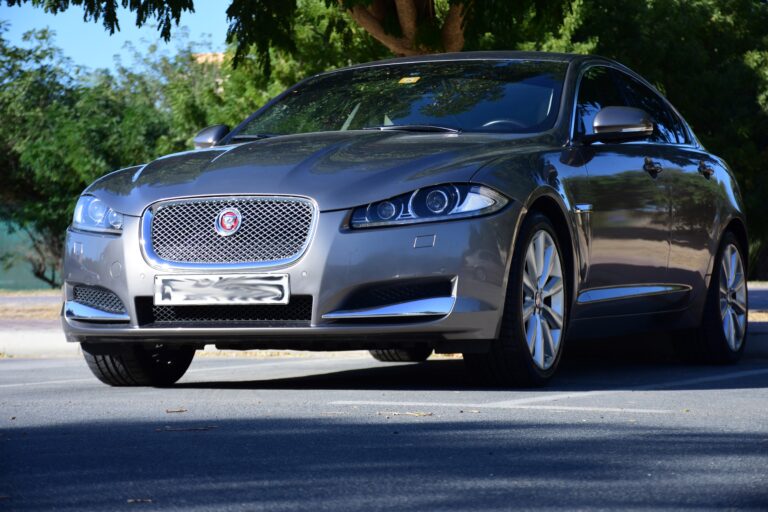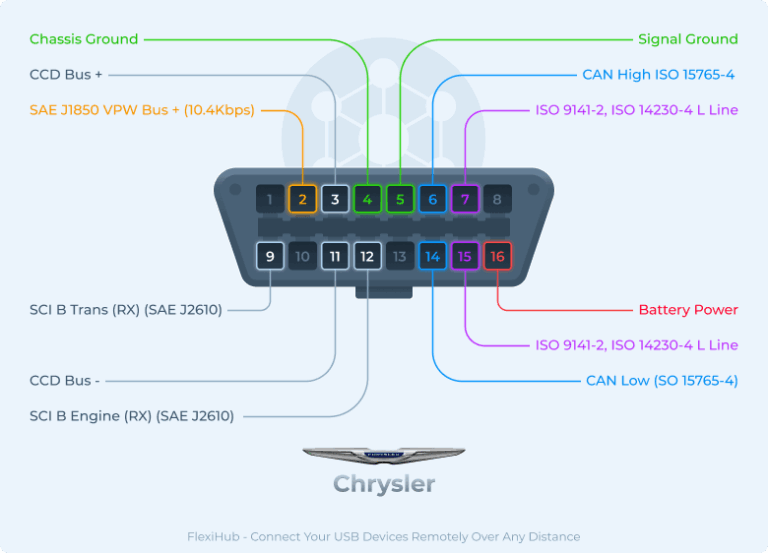What Does Branded Title Mean On A Car? Unraveling the Mystery of Vehicle Histories
What Does Branded Title Mean On A Car? Unraveling the Mystery of Vehicle Histories cars.truckstrend.com
The thrill of finding a fantastic deal on a car can quickly turn into confusion when you encounter terms like "salvage title," "rebuilt," or "flood damage" in its description. These terms all fall under a crucial umbrella known as a "branded title." Far from being mere technical jargon, a branded title is a permanent, indelible mark on a vehicle’s official record, signifying a significant event in its history that affects its value, insurability, and even its safety.
Understanding what a branded title means is not just for industry experts; it’s essential for anyone looking to buy, sell, or even insure a vehicle. It’s a key piece of information that can save you from costly mistakes or, conversely, open doors to incredible value if approached with the right knowledge and caution. This comprehensive guide will demystify branded titles, exploring their types, implications, and offering practical advice for navigating the complex world of vehicle ownership.
What Does Branded Title Mean On A Car? Unraveling the Mystery of Vehicle Histories
Understanding the Core Concept: What is a Branded Title?
At its heart, a branded title is a designation issued by a state’s Department of Motor Vehicles (DMV) that alerts prospective buyers and insurers to a significant past event concerning the vehicle. Unlike a "clean title," which implies a history free from major incidents or damage, a branded title serves as a permanent red flag, disclosing specific conditions or damages the car has sustained.
The primary purpose of branded titles is consumer protection. They ensure transparency in vehicle transactions, compelling sellers to disclose critical information that could otherwise be hidden. This disclosure helps potential buyers make informed decisions, acknowledging that a car with a branded title will typically be valued significantly lower than an identical model with a clean title. It’s a permanent scar on the vehicle’s record, reflecting a history of severe damage, inherent defects, or even criminal activity like odometer tampering.
Common Types of Branded Titles
Not all branded titles are created equal. The specific "brand" indicates the nature of the vehicle’s past incident, each carrying different implications for its safety, performance, and long-term value. Understanding these distinctions is crucial:
- Salvage This is perhaps the most common and significant branded title. A vehicle receives a salvage title when an insurance company declares it a "total loss" because the cost to repair the damage (from an accident, flood, fire, theft, or vandalism) exceeds a certain percentage of its market value (this percentage varies by state, typically 70-100%). A salvage titled vehicle is not roadworthy and cannot be legally driven or registered until it undergoes repairs and passes a state inspection.
- Rebuilt/Reconstructed Once a salvage vehicle has been repaired and passes a rigorous state inspection, its title is often upgraded to "rebuilt" or "reconstructed." This means the car is now deemed roadworthy and can be registered and insured. However, the "rebuilt" brand remains permanently on its record, indicating its past as a total loss.
- Flood Specifically assigned to vehicles that have sustained significant water damage, often due to floods, hurricanes, or deep submersion. Flood damage is particularly insidious because it can lead to long-term electrical problems, mold, rust in hidden areas, and even structural compromise that may not be immediately apparent.
- Hail This brand indicates severe damage caused by hail. While often cosmetic (dents, broken glass), extensive hail damage can sometimes affect structural integrity or lead to future rust issues if the protective coating is compromised. Cars with hail titles are generally less risky than flood or salvage, but the aesthetic damage significantly impacts value.
- Lemon Title/Manufacturer Buyback: If a vehicle has persistent, unfixable defects that substantially impair its use, value, or safety, and the manufacturer has repurchased it from the original owner under "lemon laws," it will receive a lemon title. This indicates a history of mechanical or electrical problems that the manufacturer could not resolve, even after multiple attempts.
- Odometer Rollback Though less common with modern digital odometers, this brand signifies that the vehicle’s mileage has been illegally altered to appear lower than its actual mileage. This is a serious felony and severely impacts the vehicle’s reliability and value, as its true wear and tear are unknown.
- Junk/Scrap A vehicle designated for parts or crushing. It cannot be repaired, registered, or driven. This is distinct from a salvage title in that it’s typically beyond repair.


Why Do Cars Get Branded Titles?
The decision to brand a vehicle’s title primarily rests with insurance companies and state DMVs. When a vehicle is involved in an incident (accident, flood, fire, theft), the insurance company assesses the damage. If the estimated cost of repairs reaches or exceeds a specific percentage of the car’s pre-damage market value (the "total loss threshold"), the vehicle is declared a total loss. This threshold varies by state, usually ranging from 70% to 100%.
Once declared a total loss, the insurance company pays out the policyholder and takes possession of the vehicle. It then sells the damaged car to salvage yards or dismantlers, and at this point, the title is "branded" as salvage. If the vehicle is subsequently repaired and passes a state-mandated inspection, its title may be upgraded to "rebuilt" or "reconstructed," but the original brand remains part of its permanent record. Other brands, like "lemon," are applied due to specific consumer protection laws related to manufacturing defects.
The Implications of Owning a Branded Title Car

Owning a car with a branded title presents a unique set of pros and cons that potential buyers must weigh carefully.
Pros (Potential Advantages):
- Significantly Lower Purchase Price: This is the primary allure. Branded title cars, especially rebuilt ones, can be purchased for 20% to 50% less than their clean-title counterparts. This allows buyers to acquire a newer model or a higher trim level that might otherwise be out of their budget.
- Opportunity for Value: If the repairs were done correctly and you understand the specific brand, a branded title car can offer excellent transportation value for the money, especially if you plan to drive it for a long time.
Cons (Potential Disadvantages):
- Drastically Reduced Resale Value: Just as you bought it cheaper, you will sell it cheaper. The branded title significantly limits the pool of potential buyers and will always command a lower price, often suffering a steeper depreciation curve than clean title vehicles.
- Insurance Challenges: Securing full coverage (collision and comprehensive) can be difficult or more expensive. Some insurance companies refuse to cover branded title vehicles altogether, while others will offer coverage but at higher premiums or with specific exclusions (e.g., they might only cover the cost of the repair, not the full market value if it’s totaled again). Getting quotes before buying is critical.
- Financing Difficulties: Many traditional lenders and banks are reluctant or outright refuse to finance branded title vehicles due to their reduced value and higher risk. This often means buyers need to pay cash or secure a personal loan, which typically has higher interest rates.
- Safety and Reliability Concerns: While rebuilt vehicles are inspected, the quality of repairs can vary widely. Hidden damage, especially in flood or severely damaged accident cars, can lead to long-term mechanical, electrical, or structural issues that are expensive and difficult to diagnose.
- Voided Manufacturer Warranty: The original manufacturer’s warranty is almost always voided once a car receives a salvage or branded title. This means any future repairs are entirely your responsibility.
- State-to-State Transfer Issues: Branding laws can differ between states. A car branded in one state might face challenges being registered or insured in another, or its branding might change.
Buying a Branded Title Car: A Practical Guide
Purchasing a branded title car can be a smart financial move, but only if you proceed with extreme caution and thorough due diligence.
- Do Your Homework (Vehicle History Report): This is non-negotiable. Obtain a comprehensive vehicle history report from services like CarFax or AutoCheck. This report will disclose the type of branded title, the date it was issued, and often details about the incident that led to the branding. It’s your first line of defense.
- Understand the Specific Brand: Don’t just see "branded" and walk away or jump in. Research what a "rebuilt," "flood," or "lemon" title specifically implies. Each carries unique risks.
- Professional Pre-Purchase Inspection (PPI): This is the single most important step. Hire an independent, certified mechanic who specializes in the vehicle’s make and model. The mechanic should have experience inspecting branded title vehicles and be able to scrutinize the quality of repairs, check for hidden damage (especially structural, electrical, and rust), and identify any potential long-term issues related to the original damage. Do NOT rely solely on the seller’s assurances or pictures.
- Factor in All Costs: Get insurance quotes before you buy. Account for potentially higher premiums, deductibles, and any exclusions. Also, budget for potential future repairs, as the manufacturer’s warranty is likely void.
- Negotiate Aggressively: The branded title significantly devalues the car. Use this to your advantage to negotiate a price that truly reflects its branded status and potential risks.
- Be Wary of "Too Good to Be True" Deals: If a branded title car is priced only slightly below a clean title equivalent, something is likely amiss. The discount should be substantial.
- Understand Your State Laws: Familiarize yourself with your state’s laws regarding branded titles, including disclosure requirements for sellers and any specific inspection or registration processes for branded vehicles.
Selling a Branded Title Car: What You Need to Know
If you own a branded title car and are looking to sell, transparency and realistic expectations are key.
- Full Disclosure is Key: Legally, you are almost always required to disclose a branded title to prospective buyers. Beyond legal obligations, full transparency builds trust and avoids future disputes. Provide all documentation related to the branding and any repairs.
- Price Competitively: Expect to sell your car for significantly less than a comparable clean-title vehicle. Research market values for branded titles of your specific make and model.
- Highlight the Positives: If you had the repairs professionally done, have all service records, and the car has run reliably for you, emphasize these points. A well-maintained branded title car with clear repair history is more appealing.
- Be Patient: It may take longer to find a buyer willing to take on a branded title vehicle. Private sales are often more successful than trade-ins at dealerships, which typically offer very little for branded cars.
Legal and Regulatory Landscape
The legal framework surrounding branded titles is primarily governed by individual state laws. While there are some federal guidelines (e.g., regarding odometer tampering), states have significant autonomy in defining what constitutes a branded title, the specific thresholds for total loss declarations, and the disclosure requirements for sellers.
Most states mandate that both dealerships and private sellers disclose a branded title to prospective buyers. Failure to disclose can lead to severe penalties, including fines, legal action, and even criminal charges. Some states also require specific inspections or certifications before a branded vehicle can be registered or sold. It is crucial for both buyers and sellers to be aware of the specific regulations in their state.
Understanding Branded Title Impact on Value
The impact of a branded title on a car’s market value is substantial and varies depending on the type of brand. The following table provides a general overview:
| Branded Title Type | Typical Value Reduction (vs. Clean Title) | Key Risks/Considerations | Potential Insurance Impact |
|---|---|---|---|
| Salvage | 50-70% | Not roadworthy; severe damage; high repair cost | Uninsurable for driving; parts only |
| Rebuilt/Reconstructed | 30-50% | Quality of previous repairs; hidden issues; safety | Higher premiums; limited full coverage; specific exclusions |
| Flood | 40-60% | Electrical failures; rust; mold; long-term hidden issues | High premiums; specific exclusions for water damage |
| Hail | 15-30% (cosmetic) / 30-50% (severe) | Cosmetic damage; potential for future rust; structural (severe) | Moderate premium increase; specific exclusions for hail damage |
| Lemon/Manufacturer Buyback | 20-40% | Persistent mechanical/electrical defects; potential for recurrence | Moderate premium increase; specific exclusions for recurring issues |
| Odometer Rollback | Highly Variable (significant, illegal) | Legal ramifications; unknown actual wear & tear; reliability | Potential for denied claims; difficulty obtaining coverage |
Note: These percentages are estimates and can vary based on the vehicle’s make, model, age, mileage, and the extent and quality of repairs.
Frequently Asked Questions (FAQ)
Q: Can I get full coverage insurance on a branded title car?
A: It depends on the insurance company and the specific brand. Many major insurers will offer liability, but comprehensive and collision coverage can be more challenging to obtain, more expensive, or come with specific exclusions. Always get quotes before buying.
Q: Is it safe to drive a branded title car?
A: A "rebuilt" title car that has passed state inspections is generally considered roadworthy. However, the safety depends entirely on the quality of the repairs. A thorough pre-purchase inspection by a trusted mechanic is crucial to assess safety. Salvage title cars are NOT safe or legal to drive.
Q: How do I know if a car has a branded title?
A: Always check the vehicle’s title document itself. It will clearly state the brand (e.g., "Salvage," "Rebuilt," "Flood"). Additionally, obtain a comprehensive vehicle history report (like CarFax or AutoCheck) using the VIN, which will detail the car’s history and any branded titles.
Q: Can a branded title ever be "cleaned" or removed?
A: Generally, no. A branded title is a permanent record of the vehicle’s history. While a "salvage" title can be upgraded to "rebuilt" after repairs and inspection, the "rebuilt" brand will remain permanently attached to the vehicle’s VIN. Be extremely wary of anyone claiming they can "clean" a title, as this is often a scam.
Q: Will a branded title affect my car’s warranty?
A: Yes, in most cases, the original manufacturer’s warranty is voided once a car receives a salvage or branded title. This means you will be responsible for all future repair costs.
Q: Are branded title cars good investments?
A: Branded title cars are generally not considered good "investments" in the traditional sense, as their value is significantly reduced and they depreciate faster. However, they can be a good value for transportation if you purchase them at a significantly reduced price, understand the risks, and plan to keep the car for a long time.
Conclusion
The phrase "branded title" is more than just a label; it’s a critical disclosure that encapsulates a vehicle’s significant past. While the allure of a lower price tag on a branded title car can be strong, informed decision-making is paramount. Understanding the specific type of brand, thoroughly investigating the vehicle’s history, and securing a comprehensive independent inspection are not just recommended steps—they are essential safeguards.
For the savvy buyer, a branded title vehicle can offer a practical, affordable mode of transportation. For the uninformed, it can lead to endless headaches, unexpected costs, and profound disappointment. In the world of car ownership, knowledge truly is power, and when it comes to branded titles, it’s the key to driving away with confidence, not regret.






